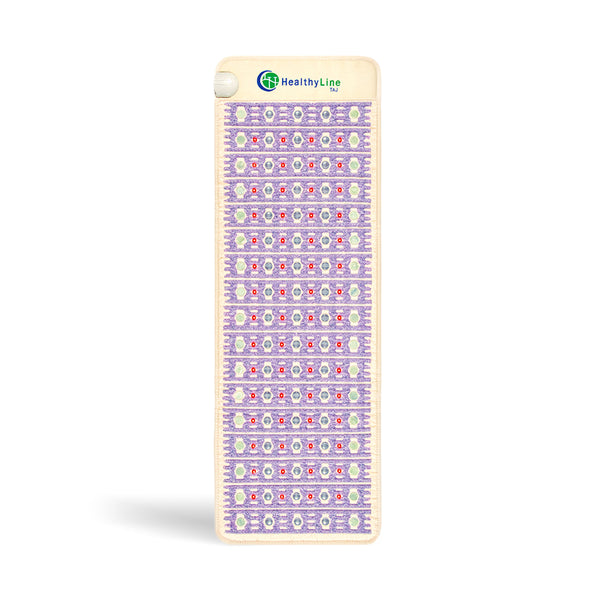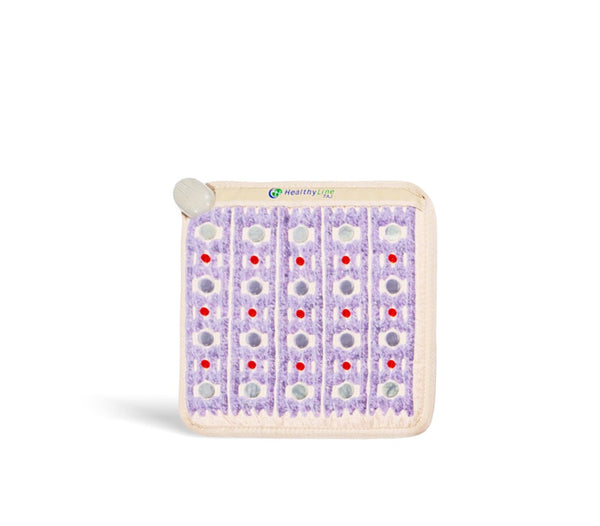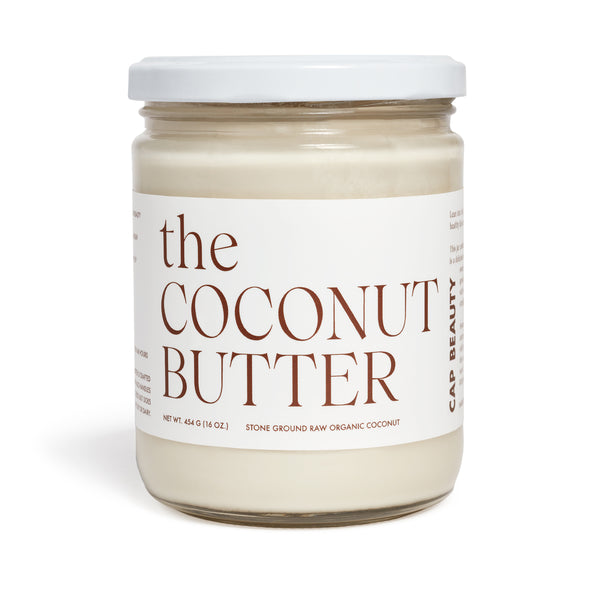What does your morning routine look like?
Love this question! It sounds like a lot, but I accomplish this in about an hour to two hours. I wake up a bit earlier to get it all done. Upon waking, I do coconut oil pulling and tongue scraping, then brush my teeth (this is all for oral health), then I hit the gym for some light cardio and strength training. When I get home, I take a cold shower for natural energy (if you are trying to make significant gains at the gym, I recommend waiting a few hours for a cold shower as the cold can decrease gains a bit).
Then use my red light panel while I dry brush and apply my lotions. I use the panel for 10-15 minutes. The benefits range from topical benefits like decreased skin inflammation and improved skin health to internal benefits like energizing my mitochondria. After the red light, I make my organic coffee and sit down for my gratitude practice and meditation. After that, I read one page out of two books. The Maxwell Daily Reader and the Daily Stoic. After all this, I am super energized mentally and physically and ready to dominate the day.
How does brain health fit in the overall holistic picture of wellness?
I believe that brain health should be the primary pillar of holistic wellness. We are living in a time when depression is the number one cause of disability worldwide. I prioritize brain health because I know that if my brain functions optimally, my thoughts will be more positive, my cognition will be sharper, and I will make better decisions for my overall health and wellness. Additionally, we now know that degenerative diseases like Alzheimers begins developing 20-30 years before ever presenting a symptom, so it is important that we prioritize our brain health now, not only to benefit our overall quality of life but also to extend our brain healthspan. The important thing to consider is that what we do to benefit our brain will also benefit our bodies.
What is the brain made out of, and what nutrients keep it functioning optimally?
The brain is primarily made of fat and water, so healthy fats are critical for optimal brain health. I love wild-caught salmon and sardines, which are loaded with DHA and EPA and other brain-loving healthy fats like avocado and organic extra virgin olive oil. Wild and organic blueberries are wonderful and are loaded with antioxidants and polyphenols. Cacao is a super-brain food as well. I choose dark chocolate that is at least 70% cacao or higher. And turmeric is an incredible, anti-inflammatory spice to add to as many things as possible! I like to do daily ginger turmeric shots.
Optimal protein intake is also critical for neurotransmitter function. Overall, we want to think of food as medicine and opt for whole foods. I do not consume any chemical-filled food-like products and stick with single-ingredient foods. Also, be conscious of the oils you choose to cook with. Oils like canola and soybean oil are pro-inflammatory, and soybean oil has been linked to genetic changes in the brain. Organic greens are also incredible for overall health.
Where do you recommend people start on a journey to a healthier brain?
I love to recommend starting with the basics or easy simple swaps. Taking small steps forward is much more sustainable than trying to make numerous changes at once. Increasing our water intake if you are not currently consuming enough water, going to bed earlier or prioritizing sleep, and swapping processed foods for whole foods are great places to begin.
Next, exercise is a truly incredible brain booster. I like to encourage more walking (I personally aim for 10-15K steps daily), along with 3-4 strength training sessions per week. When we exercise, we boost blood flow to the brain, increasing our nutrient and oxygen delivery. We also boost BDNF, a chemical that acts like miracle grow for the brain by encouraging new neuron growth. It also increases dopamine (our motivation molecule) and serotonin (happiness chemical) levels.
Lastly, I also love cold showers for brain health. Cold showers can significantly increase our dopamine levels and offer a natural boost of energy. Over time, cold water exposure can also reduce systemic inflammation and strengthen our BBB or blood-brain barrier. You can start with 30 seconds of cold at the end of your shower and work your way up to 5+ minutes.
How do you define biohacking?
Changing the environment internally and externally to upgrade your health. Biohacking can range from free ancestral practices to high-tech pieces of equipment for biology upgrading. For me, testing is a critical part of biohacking. We have to understand what is going on within our bodies in order to optimize our health.
What are the signs of poor brain health?
This is individual, but a few symptoms can be brain fog, busy brain (not being able to focus and being highly distracted), forgetfulness, migraines and depressive symptoms.
What are signs of optimal brain health?
Clear cognition, strong memory, happier thoughts and good sleep.
What are the most common disruptors of brain health you see with your clients?
Toxic environments, poor lifestyle and brain injury. It's important to keep your environment as non-toxic as possible. Some clients find mold in the home, which can lead to many cognitive ailments. Also, swapping traditional cleaning products for less toxic products, and like everything that you offer at CAP, natural and tested beauty products.
We are living in a toxic soup these days, from the quality of our air to EMFs, endocrine disruptors in many beauty and care products. I like to use the ThinkDirty app to scan products to determine their toxicity levels. I also recommend water filters, air purification and shower water filters if possible. You can start small and continue swapping items when you can.
Also, lifestyle factors such as smoking, staying sedentary, excessive alcohol consumption, or a diet made up of many processed foods are harmful. Our inputs when it comes to the brain are critical. We cannot treat our bodies poorly and expect them to perform optimally. Lastly, this is less common, but brain injury, because our brains are so soft and our skull is so hard, we have to protect the brain. Falls or contact sports like football can lead to head injuries that harm brain functioning.
Do you recommend Intermittent fasting for brain health?
Personally, I do. The recommended feeding and fasting window will vary significantly depending on the person, but as we know, from an ancestral standpoint, we did not eat all hours of the day. Taking breaks from eating and digesting food is beneficial for our bodies and our brains. Our brains also like to cycle between burning glucose and ketones. Ketone production will ramp up during fasting.
What types of mindfulness techniques do you recommend for optimal brain health?
Definitely meditation. Meditation is a great brain anti-aging tool and will improve your focus and mood immediately. In studies of meditators vs. non-meditators, meditators have more grey matter and a thicker hippocampus, the part of the brain involved in learning and memory. Meditation can also decrease activity in our stress and fear centers, namely the amygdala. I use an at-home neurofeedback device called FocusCalm to measure my meditations and ensure that I am reaching optimal benefit.
Is the brain able to recover from years of poor brain health habits?
Yes, absolutely. Diet, lifestyle and mindfulness practices can significantly improve the brain, and one of my favorite brain biohacks for more serious damage like TBIs or toxic exposure is hyperbaric oxygen therapy. HBOT combines pure oxygen and pressure to drive oxygen into your cells and significantly increases blood flow to the brain.
How well does alcohol and our brain health mix?
Unfortunately, alcohol is a neurotoxin, it also lowers blood flow to the brain, and we have covered how important it is to improve your blood flow. I recommend to clients and my community that they limit or even substitute alcohol for some of the new non-alcoholic beverage options on the market. If you are going to drink, try and choose a clean, organic/biodynamic wine. Many conventional wines are loaded with dyes, fillers and chemicals.
How much sleep is required for optimal brain health?
Sleep is a foundational component of better brain health. During sleep, our brain's glymphatic system is activated, which is our brain's cellular waste clearance and recycling system. We also store memories while we sleep. I love using the oura ring to measure the quality of my sleep. We should all be aiming for 7-9 hours of sleep per night, but the quality is also imperative. Deep and rem sleep cycles are the most restorative cycles of the night, so optimizing those are key.
What is neuroplasticity, and why is it important?
Neuroplasticity is our brain's incredible ability to rewire and essentially change how we think. Our brain looks different today than it did yesterday and will look different tomorrow as well. Our neural networks change based on our inputs and thoughts. Essentially, if we have constant negative thoughts and negative interactions and inputs, our neural networks for negativity will strengthen while our neural networks for happiness will begin to weaken. This is why focusing on what we put into our minds is so paramount, from what we consume on social media or online or the news and what we are reading to the new things we learn. We have the power to change our brain's functioning for the better or worse depending on what information we give it and the experiences that we have.
They say the gut is our "second brain," thoughts?
Yes, it absolutely is, we actually have neurons in our guts, and most of our serotonin (a neurotransmitter) is housed there. The gut and brain are also directly connected, so better gut health = better brain health. If you are experiencing gut health symptoms like bloating or irregular bowel movements, I always recommend a gut test to identify the dysbiosis and correct the issue. This is also another reason why treating food as medicine is critical, the foods we eat impact our gut microbiome.





